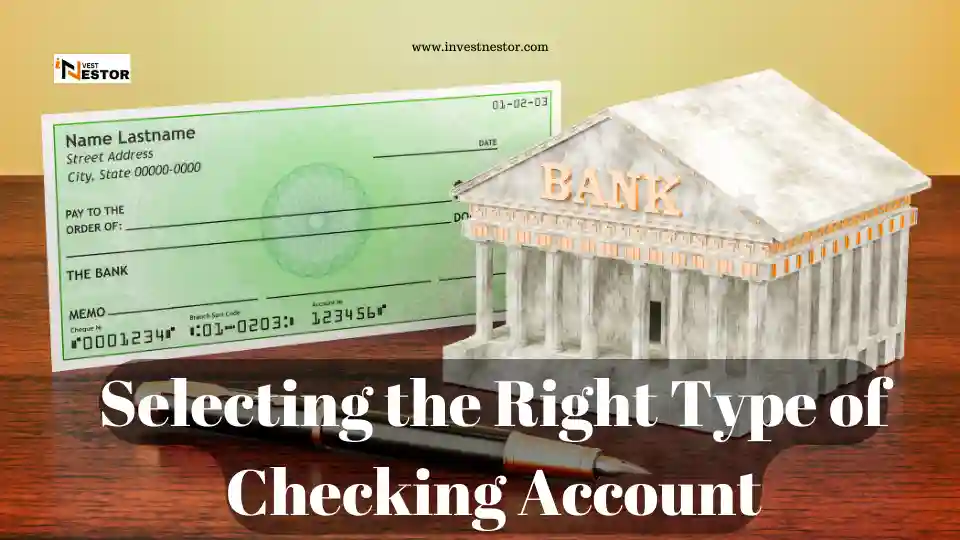
How Long Should You Retain Bank Statements For?
How long should you keep those monthly bank statements that build up? Most people are unaware that financial documents must be kept for a particular time. Statements that are too lengthy take up space, while short ones might create difficulties. Bank statements should be kept for at least 1 year, but how long depends on your demands and situation. Let's know how long it takes to keep bank statements.
Key Points
-
In most normal circumstances, bank statements over a few years old have little value and can be shredded or deleted.
-
Keep what you need for records and peace of mind, then clear out the clutter—your filing cabinets and hard drive will thank you!
-
Streamlining what you keep today will save time and hassle in the long run.
Why Should You Keep Bank Statements?
Find out the reasons why keeping bank statements is essential for your financial security
1. Record-keeping
First, bank statements document all account activity. Banking activity documentation is essential for budgeting, taxes, and tracking illegal expenditures. Most experts advocate retaining statements for 2-3 years.
2. Disputing Errors
Your statement is needed to dispute illegal charges or inaccurate fees with your bank. Maintain statements for at least a year after a disagreement is resolved; some take weeks or months.
3. Tax Purposes
Interest generated on bank statements may need to be declared on taxes. We recommend preserving at least 3 years of statements because the IRS requires records to be kept for 3-7 years.
4. Loan Applications
Mortgage, loan, and line of credit lenders generally want months of bank records to verify income, expenditure, and available cash. Keep 1-2 years of statements on hand for this purpose.
How Long to Hold onto Bank Statements?
Usually, you should preserve statements for three years, but seven is better. Here are several important reasons:
-
The IRS can audit a tax return for at least 3 years, so retain statements to verify deductions and income. However, if there are substantial understatements of income, the audit window extends to six years. To be safe, seven years is ideal.
-
Bank statements are commonly required for mortgages, vehicle loans, and other large financing to verify income, spending, and ability to repay. Keeping two to three years of statements on hand will ensure you have what they need.
-
In the unlikely event of fraud or errors, bank statements provide a record of your transactions, withdrawals, deposits, and balances. Although banks keep records for several years, it's best if you maintain your own records as well, especially for important or sizable transactions.
Is it worth keeping old bank statements?
In general, no. Bank statements are mostly useful for short-term record keeping and taxes and grow less significant over time. However, there are several reasons to keep some statements:
-
For tax records: Keep statements for the current tax year, as well as those from the past 3-5 years, in case of an audit. Shred or recycle statements older than that.
-
For loan/mortgage records: If you have an ongoing loan, keep statements for the life of the loan. Once it is paid off, keep it for an additional year. This proves your payment history if any questions arise.
-
For investment/retirement account records: Keep annual statements from investment and retirement accounts like 401(k)s, IRAs, and brokerage accounts. These show your contributions and balances for tax and portfolio purposes.
-
For home purchase/sale records: Keep statements from the year you bought or sold a home. These may be needed if there are questions related to down payments, closing costs, or capital gains taxes.
-
For insurance claims: If you've recently filed any insurance claims, keep related statements. Your insurance provider may request statements as evidence to support your claim.
-
For identity theft monitoring: Some experts recommend keeping at least the past year's statements to regularly check for any unauthorized charges or withdrawals, which could indicate identity theft or fraud.
When You Can Safely Shred Old Bank Statements?
So you've decided it's time to clear out some of those old bank statements taking up space. But how long should you really keep them? Here are some guidelines to help you decide when you can safely shred certain statements:
1. Monthly statements
You can shred monthly statements after one year. These provide a snapshot of your account activity and balances for the past month. Unless you need them for your records or tax purposes, there's no need to keep statements that are more than 12 months old.
2. Year-end statements
Hold on to year-end statements for 3-7 years. These summary statements provide an overview of your account activity, interest earned, and balances for the entire year. Keep them for tax records and in case of any disputes. After 3-7 years, you can shred year-end statements unless needed for long-term financial records.
3. Statements with tax-related transactions
Keep any statements that show tax-related transactions like mortgage interest paid or charitable donations for at least seven years. These may be needed for tax audits or amending tax returns. Once the audit period has passed, you can shred these statements.
4. Statements involved in disputes
Never shred any statements involved in a dispute, claim or unresolved issue. Keep these until the issue has been completely resolved. This includes statements that show unauthorized activity, fraud or errors that you have reported to the bank.
5. When in doubt, don't shred
If you have any doubts about shredding a particular statement, it's best to keep it. Storage costs are minimal, but tracking down old statements you shredded prematurely can be difficult and time-consuming. Take a cautious approach and only shred statements when fully confident they are no longer needed.
Keeping your statements organized and purging them regularly will make it easier to find what you need when you need it. And following these guidelines will ensure you don't shred any statements you may need in the future.
Final Words
You now know how long to keep bank statements. Keeping proper financial records might save you trouble later. Filing statements each month may seem laborious, but you'll be pleased you did if you need to find cash or errors.
If storing physical copies stresses you out, go paperless—most banks let you access years of statements online. Establish a system that works for you while keeping records. Financial management is crucial, but it doesn't have to be difficult. Keep things simple and follow a routine to be healthy.
FAQs
How long should I keep bank statements for tax purposes?
Keep bank statements for at least seven years for tax documentation. The IRS can audit tax returns up to 3 years after filing and sometimes up to 7 years later. Holding onto bank statements for at least that long ensures you have records to support any deductions or income reported.
Do I need to keep paper bank statements?
No, you do not need to keep paper bank statements. Most banks allow you to opt out of receiving paper statements in favor of electronic statements. This is a more environmentally friendly and convenient option. Download and store your electronic statements routinely for seven years.
What should I do with old bank statements?
Shred old paper bank statements when disposing of them to prevent identity theft. Never throw them in the trash. For electronic statements, permanently delete the files from your computer. If storing statements long-term, consider scanning paper statements and saving them in an encrypted folder or using a password-protected storage device.
Should I shred my old bank statements or keep them?
No, it is not safe to throw away old bank statements in an unshredded state. If obtained by criminals, unshredded documents with account numbers might lead to identity theft. Always shred paper bank statements before throwing them in the trash.
How can I store bank statements digitally?
The safest ways to store bank statements digitally include:
- Save encrypted PDF statements to external storage like a USB drive.
- Upload statements to secure cloud storage like Google Drive or Dropbox and protect with two-factor authentication.
- Protect your computer folder with a password for statement PDFs.
- Scan paper statements as PDFs and save them to one of the above options.
Suggested Articles:


 to Your Advantage.webp)



0 Comments
Add a comment